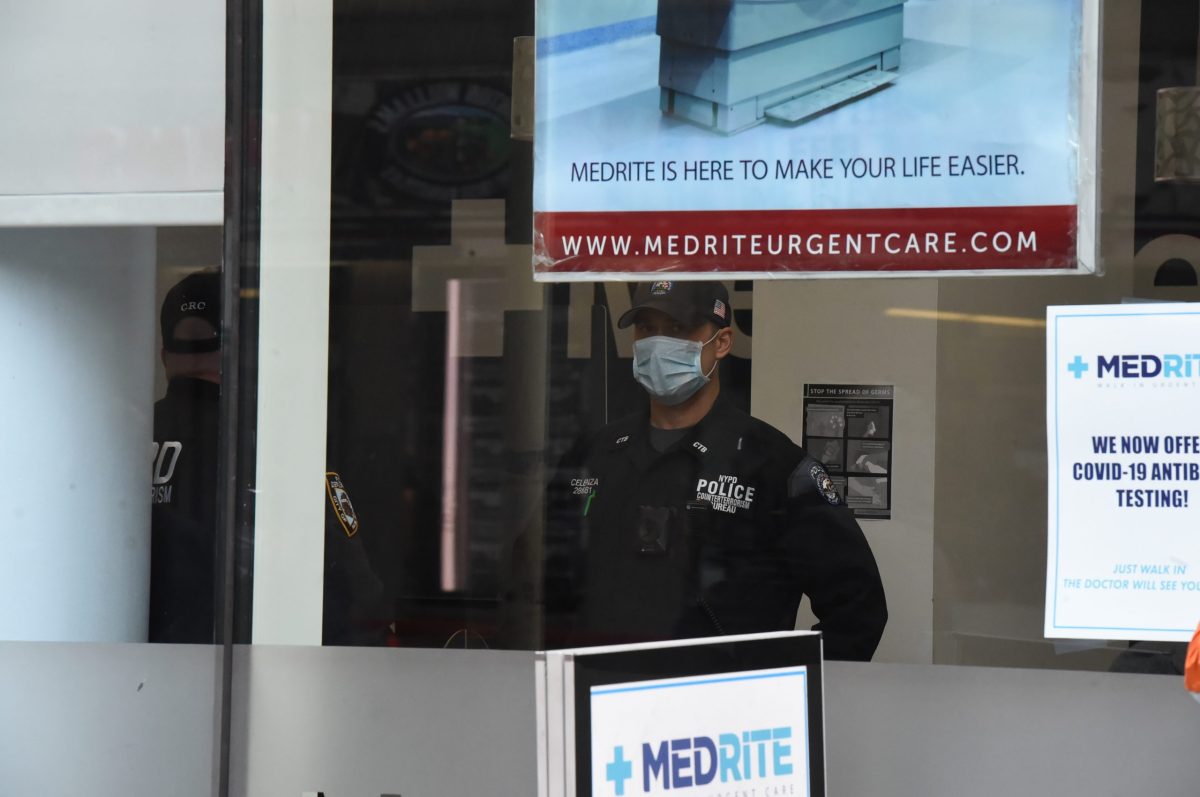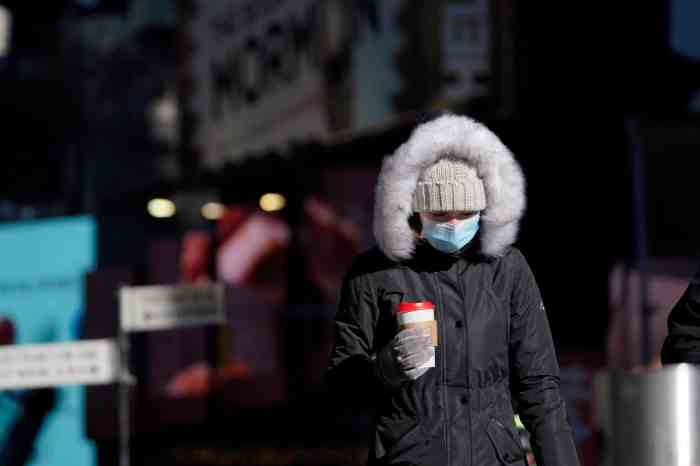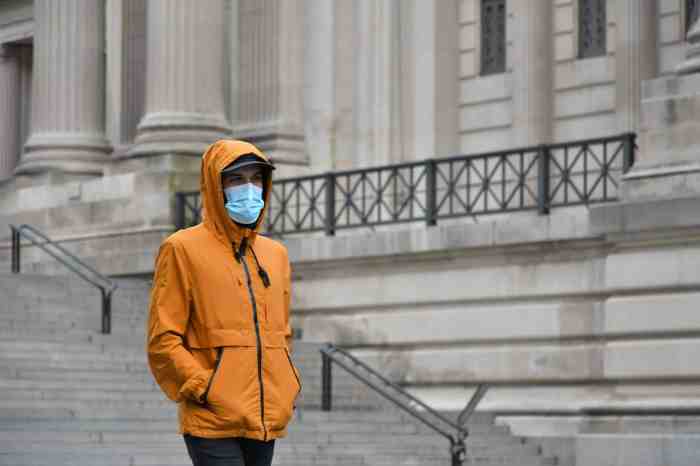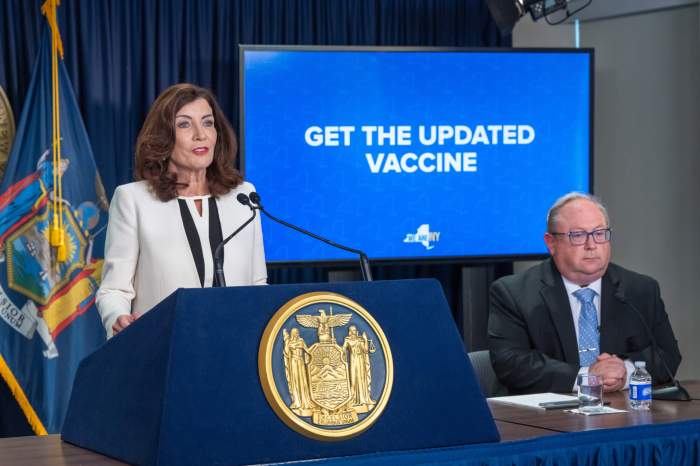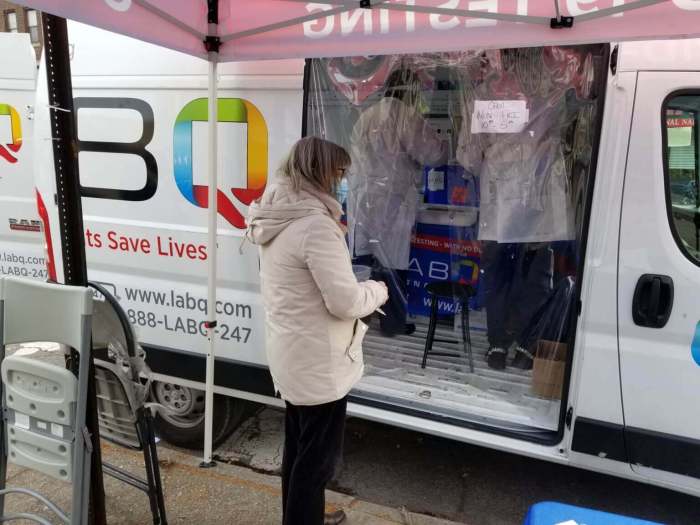The NYPD continued their decline in the number of uniformed members reporting sick to 8.6 percent of the force, mostly as a result of coronavirus. That is down from a high of 19.8% more than two weeks ago.
Commissioner Dermot Shea expressed optimism on the latest numbers. In an interview Tuesday morning on WCBS radio, he said, “We are 19 days closer to normal – we are still stretched, but all indicators are positive so I’m cautiously optimistic as we continue safe practices of social distancing and some workers telecommuting. But it is positive news.”
However, the NYPD announced that 37 members of the department have so far died of COVID-19 related complications. Six of those were reported between Friday to Sunday.
On Monday, April 27, 3,123 uniformed members of the NYPD were out sick compared with 3,166 the day before. To date, 4,849 members of the NYPD have tested positive for coronavirus. As of April 27, 3,557 members of the NYPD have returned to work full duty after recovering from a positive test for the coronavirus and 934 uniformed members plus 321 civilian members are still out sick diagnosed with coronavirus.
The NYPD reported over the weekend six members of the department that died from complications of the coronavirus. Principal Administrative Associate Josephine Hill dedicated 33 years to the NYPD, last 19 assigned to the Manhattan Tow Pound Unit; Associate Traffic Enforcement Agent Mohammad Ahsan served 15 years with the police department, most recently assigned to the Bronx Traffic Enforcement Unit.
In addition, Auxiliary Police Officer Roger Muscadi, assigned to the 63rd Precinct Auxiliary Unit, died on Thursday, April 23, from complications related to the coronavirus. Auxiliary Police Officer Muscadi became a member of the NYPD on June 30, 1999. City Custodial Assistant Cheryl Johnson, assigned to Facilities Maintenance Section, died on April 25 from coronavirus. Custodial Assistant Cheryl Johnson became a member of the NYPD on May 23, 2013. Traffic Enforcement Agent Yves Sajous, assigned to TRB Manhattan, died Monday, April 20, from complications related to the coronavirus. Traffic Enforcement Agent Sajous became a member of the NYPD on May 28, 2014. School Safety Agent Gloria Sosa, assigned to the 112th Precinct School Safety Unit, died on Thursday, April 23, from coronavirus. School Safety Agent Sosa became a member of the NYPD on March 19, 2018.
Shea said his officers still worry about what they are bringing home to their families with “some people at the end of the day changing out of their clothes in the driveway.” He added, “The sooner we are out of this craziness, the sooner we can get back to normal and I do see light at the end of the tunnel.”
Other positive indicators that Shea cited was a drop in crime during the past five weeks, but “this is no surprise.”
“When there is no one on the street, businesses are closed, 95 percent ridership on subways down, of course crime is down, but our concern is whether there is a storm on the horizon.”
He said “certain segments of the population are still committing crimes.” He said cars are being stolen, robberies are taking place with people still not on the streets.
“We are worried, but we will be very aggressive in identifying people committing crimes and make sure we remain the safest city in the world,” Shea said.
Quality of life issues on subways continues to be a nagging problem, especially increased numbers of homeless in the stations and on trains.
“I’ve seen the pictures and there is a combination of factors,” Shea said “With 95 percent ridership down, condensed trains, there is no camouflage for the homeless. I’m troubled to see pictures of these people who clearly need help, and there is a mental health component. But we also have to have workable, clean trains, so we are being proactive.”
Shea said officers are ejected people on a daily basis, but we “don’t eject because homeless.” He said many homeless are committing rule violation, with “100 in one borough ejected.”
“Being homeless and down and out is not what we target for – so we are trying to help people with social workers, nurses. We are going out to interact with people connect them with services – get them off of the train station and brought to hospitals.”
Shea also discussed the opening of 40 miles of streets that will be closed to cars. He said while people need to get out and get fresh air, he said there is a safety factor that his officers must assure, “so we don’t have errands cars on closed streets, with people with babies in strollers – safety is paramount.”
Officers continue to visit restaurants, bars, supermarkets, salons and public spaces to remind individuals of the ban on congregating in public spaces and to practice social distancing.
The state has also given priority for testing to first responders, including many police officers now being tested for coronavirus anti-bodies around the city.



